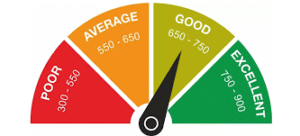The National Stock Exchange has meaning in most instances as the National Stock Exchange. It primarily contributes to structuring and organizing Indian financial markets. The early 90s saw the birth of this institution, which was aimed at developing trade systems in consonance with the new technology-based approach toward trading. The NSE yearned for transparency, efficacy, and access in the equity markets.
The full form of NSE is National Stock Exchange of India Limited. It is an online trading platform for equity, derivatives, debt instruments, and other financial securities. Under the aegis of the regulatory bodies, orderly conduct of trading activities is assured. It is also equipped with the latest electronic systems to provide real-time data to market participants, enhancing the quick execution of trades.
The architecture of the exchange seeks to overcome the drawbacks of broker-supported systems and manual trading floors with electronic trading, hastening trading and lowering trading costs. The architecture thus supports all risk management frameworks, clearing and settlement processes, and information dissemination tools required for market operations.
Nifty 50 Index: An Indicator of Movement in the Market
Another remarkable feature of the NSE is that it holds the Nifty 50 Index, which is regarded as the benchmark yardstick against which market movements are generally gauged. This index consists of 50 large-cap scrips from various industries that are listed on the exchange. These companies are selected from many criteria such as liquidity, free-float market capitalization, and representation by industry.
It is now hugely used among various investors, fund managers, and analysts to judge overall market performance as well as investor sentiment. It provides a bird eye view of the performances in key sectors in an economy. Movements of the index often connote more general trends in the economy and influences from the global market. Portfolio management strategies and various financial products such as index funds, exchange traded funds (ETFs), and derivatives are being popularized even on the basis of Nifty 50 Index performances.
Role of NSE in Algorithmic Trading
Algorithmic trading – as we have known it, and as the financial markets have been evolving – means using pre-programmed solutions for automated order executions. Many are specifically designed to be faster than human traders via mathematical models and statistical techniques for finding trading opportunities necessary for triggering order placements.
The entry of NSE into algorithmic trading marks the beginning for growth in this space in India. With the kind of infrastructural elements like connectivity and data feed that support such strategies, further complemented by low-latency trading environments, communication channels give seamless capabilities to market participants to trade in a truly condition in their lives.
NSE’s high technology platform is fully embraced to support staff together with back-testing and even real-time monitoring, among other things, which are required for algorithmic compliance and performance. Also, the exchange provides historical data to its traders to test their strategies and skills in making the most out of opportunities.
There are strategies and rules in place to guide the practice of algorithmic trading. Given the absence of regulations, there are vast venues for the abuse of algorithmic trading technology, and hence NSE cooperates actively with regulatory bodies to ensure that algorithmic trading technology works within a designated set of rules allowing trading but not another proliferation of capital fraud. Trading environments for precision are peppered with systems that diminish harmful threats, monitor the same, prevent possible risks, and strengthen missing links when put at disadvantage by normal operations.
With the increasing mechanism of algorithmic trading, market growth would also increase. The increasing ability of algorithmic trading would be to provide adequate measures for establishing substantial and realistic growth figures to the investor community.
Conclusion
The NSE full form stands for the National Stock Exchange of India, which has played an important role in shaping the country’s capital markets. Through initiatives like the Nifty 50 Index, it provides a benchmark for market performance while offering tools and infrastructure that support advanced trading methods such as algorithmic trading.




